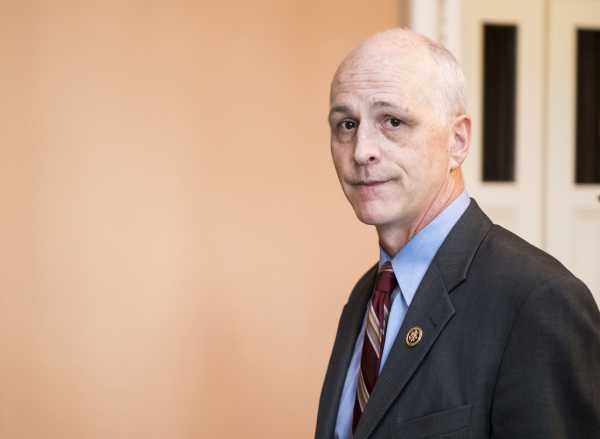
If the Democrats take control of the House of Representatives after the midterm elections next week, one of their biggest priorities will be majorly challenging the Trump administration’s national security and foreign policy.
That could put significant pressure on President Donald Trump to change his personal conduct, his stated worldview — and even his foreign business ties.
Democrats in the House generally disagree with how the Trump administration is running the ship. Controlling the House would allow them to actually do something about it.
They want greater scrutiny of the Pentagon and State Department’s operations and spending. They will try to nudge the US toward tackling longer-term global challenges, such as climate change or global poverty, instead of wars in, say, Yemen. They hope to better understand if Trump’s family business relationships influence the president’s thinking on foreign affairs. And they may even reopen the stalled probe into Russia’s election influence.
Not all House Democrats share the same foreign policy views. Progressive, self-identified “foreign policy populists” want top Trump officials — like Secretary of Defense Jim Mattis — to justify troop deployments in a process that includes dramatic, days-long hearings. That proposal may set up a fight with more centrist Democrats who typically refrain from making a show of criticizing the military.
There are also areas where House Democrats overlap with Trump, namely, the diplomacy-first approach toward North Korea. But overall, they plan to significantly challenge — and in some cases, curtail — much of the administration’s foreign policy.
The Senate will likely remain in Republican hands, which means House Democrats will be limited in what they can do. But based on interviews with six Democratic House members and aides, that won’t stop them from trying to push back on Trump.
“There will definitely be a reevaluation of America’s engagement in the world,” Rep. Joaquin Castro (D-TX), a member of the House Foreign Affairs and Intelligence committees, told me.
House Democrats plan to increase oversight of the military
Rep. Adam Smith (D-WA) is poised to become the chair of the House Armed Services Committee (HASC) if the Democrats succeed on November 6. He told me the next Congress should focus on:
- Overseeing Trump’s use of the military, particularly its deployment in disaster response, as well as its “lack of a consistent policy concerning civilian casualties.” Roughly 3,000 Puerto Ricans died during and in the aftermath of September 2017’s Hurricane Maria.
- Auditing the Pentagon “to ensure that we are getting the best value for the taxpayer dollars we are spending.” Mattis said on Tuesday that the Pentagon is already preparing for an audit.
- Promoting “an inclusive military.” Trump tried to ban trans people from serving in the summer of 2017.
- Pushing back on Trump’s plan to increase and modernize the US’s nuclear arsenal. “We currently have a reliable nuclear deterrent that is more than adequate,” Rep. Smith said.
- Ensuring troops are properly trained for their missions. The military has seen a recent uptick in fatal training accidents since 2013.
- Tackling large issues ignored by the Trump administration — like the threat of climate change.
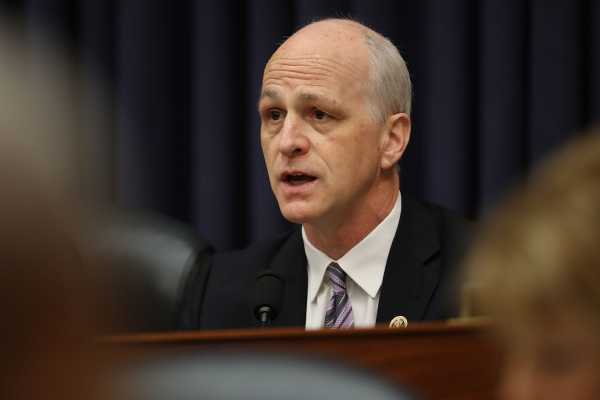
HASC Democrats seem mostly on board with this plan, especially the oversight part.
Rep. Anthony Brown (D-NY), a HASC member and veteran, told me he wants “to ensure the Department of Defense is more transparent with Congress, and that we are fulfilling our oversight role of the Trump administration.”
Democrats “will approach issues the way Smith has been saying they will,” a House Democratic aide told me. But there may be a growing challenge from progressives, like HASC member Rep. Ro Khanna (D-CA), who say they want to change the way the US thinks about national security and foreign policy.
“We need restraint in our military use, a new focus on diplomacy and statesmanship, to develop human capital, and engagement with others when it comes to tackling foreign problems,” he told me, adding that there’s a growing push to link US foreign policy with economic populism.
The goal of “foreign policy populists,” a label Khanna says he applies to himself, is to question each dollar spent on military affairs that doesn’t go to improving America’s infrastructure, education system, or health care.
One way to do that, Rep. Khanna continued, would be to have Mattis and the Joint Chiefs chairman, Marine Gen. Joseph Dunford, join HASC for a three-day hearing to justify every military deployment — an idea Rep. Khanna said he’s spoken to Rep. Smith about. It’s unclear if that would happen, though, or how hard the Pentagon would push back against that request.
Still, the US should spend money on foreign issues, primarily curbing climate change and its effects, curtailing China’s power, alleviating global poverty, and promoting women’s rights. In effect, it’s a strategy to rebuild at home but help abroad when possible and in the world’s interest. “It’s a hybrid of Bernie Sanders’s restraint and Bono’s engagement,” says Khanna.
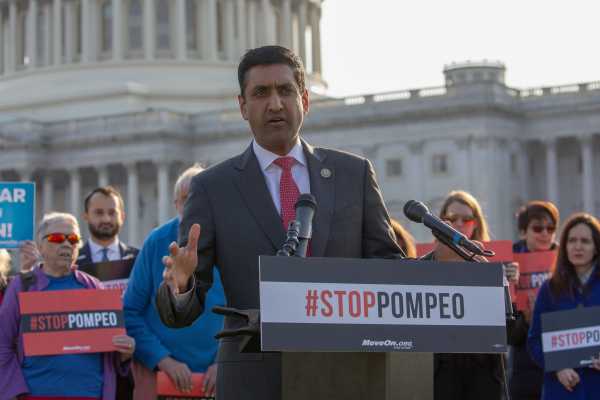
Many other HASC Democrats agree that the Defense Department’s actions require more scrutiny than it currently receives. “If Obama was guilty of micromanaging the Pentagon, Trump is the opposite, so you’ll see a lot more oversight in that regard,” one House Democratic staffer told me.
House Democrats will look into Trump’s foreign connections
A different Democratic congressional aide told me what Democrats on the House Foreign Affairs Committee (HFAC) — likely to be led by Rep. Eliot Engel (D-NY) — would prioritize.
That list includes:
- Greater oversight of the State Department and the US Agency for International Development (USAID). The committee is particularly interested in looking into the administration’s “loyalty tests,” where they vet officials for their loyalty to Trump. Secretary of State Mike Pompeo “assured us that won’t happen,” the aide said, “but it happens over and over again.”
- Trump’s potential conflicts of interests abroad. Democrats remain unsuccessful in obtaining documents about the Trump Organization’s property in Panama, for example.
- “Toughen[ing] up our response to Russia — or any country for that matter — for their election interference,” the aide said.
- Challenging the administration’s stance toward Moscow, especially the president’s warm embrace of Russian President Vladimir Putin.
- Updating authorizations for the use of military force abroad, which have remained untouched since 2002.
- Ending America’s support for the war in Yemen, for which there is a growing congressional effort to end. On Tuesday, Mattis and Pompeo both said they wanted a ceasefire in Yemen within the next 30 days.
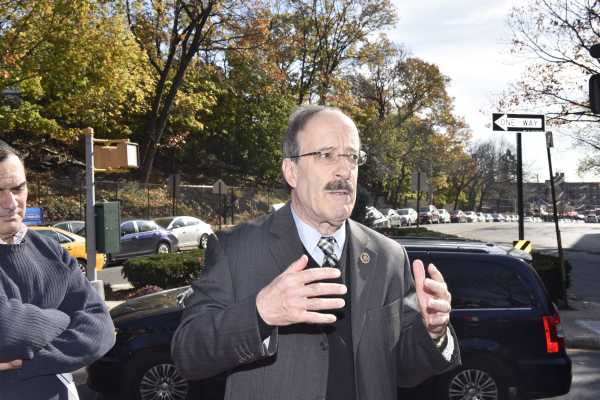
The oversight part is key. Even if Republicans keep the Senate, House Democrats can still request documents to perform their oversight duties. Though the GOP can stymy legislation, it would have no authority to block those requests because of the committee’s oversight function.
That could mean a lot of hearings, or at least inquiries, about the president’s past ties to Russia, and if the Trump Organization’s business dealings around the world have any effect on his foreign policy. There’s some worry about that: Four foreign governments spent money at Trump properties in 2017, government watchdog group Public Citizen said in January.
“Business is booming at the Trump International Hotel in DC, not because of the décor, but because corporations and foreign governments want to curry favor with the president,” Robert Weissman, Public Citizen’s president, said in a statement at the time.
Rep. Castro told me he wants the party to look deeply into some of Trump’s most contentious relationships, especially the trade war with China and growing ties with Saudi Arabia. He also wants Democrats to closely scrutinize Trump’s threats to cut aid to Africa and Latin America, as well as relationships with new leaders in Mexico and Brazil.
Far right politician Jair Bolsonaro, who won Brazil’s presidential election on Sunday and has expressed admiration for Trump, troubles Castro: “He speaks in fascist overtones,” he said. Trump congratulated Bolsonaro on his win, and White House press secretary Sarah Sanders said on Sunday that the president looks forward to working “side by side” with him.
Democrats still hope to work in a bipartisan fashion with their Republican colleagues. HFAC is notable for how well both sides have worked together in the past, but there’s a chance the heightened pressure on Trump may sour relations down the line.
“We want to work with them,” the Democratic congressional aide told me, “but it’s up to them to decide [that] they want to work with us.”
Democrats may restart Congress’s Russia probe
Castro also serves on the House Intelligence Committee — and he wants it to pick up the stalled investigation into Russia’s interference during the 2016 presidential election.
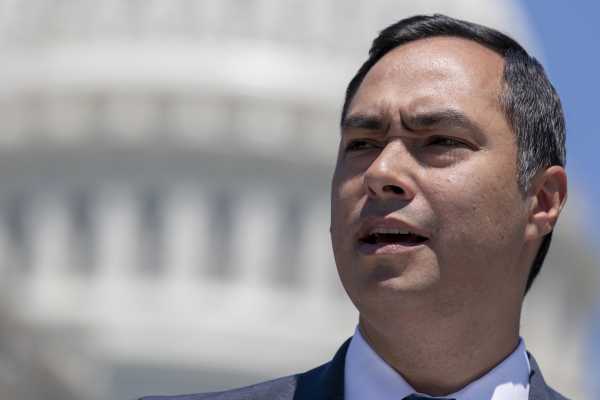
House Republicans who led the probe brought it to a conclusion in March, saying there was “no collusion” between Russia and the Trump campaign. A more bipartisan effort in the Senate continues.
Democrats, though, have continued to interview people who may have pertinent information. For example, in July they spoke for four hours with Simona Mangiante Papadopoulos, former Trump campaign aide George Papadopoulos’s wife.
Castro told me Democrats should dig deeper to verify all the information the committee as a whole has been told. “This committee didn’t issue a single subpoena to verify what dozens of witnesses told us,” he said.
It’s unclear, though, how much cooperation Democrats would get from Republicans — especially those tied to the Trump campaign or administration — during a renewed probe. After all, there’s a good chance a Democrat-led House and a GOP-led Senate would increase tensions, but that doesn’t worry Castro.
“You can have gridlock with a divided government,” he told me, “but it’s healthy if Democrats control at least one chamber. It’s good for transparency.”
Sourse: breakingnews.ie
0.00 (0%) 0 votes


































